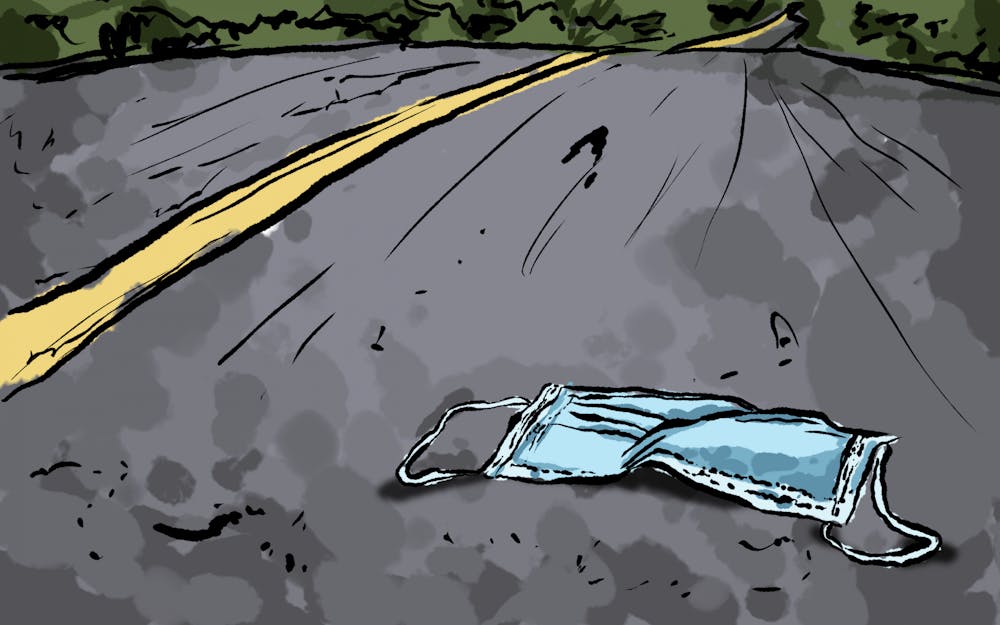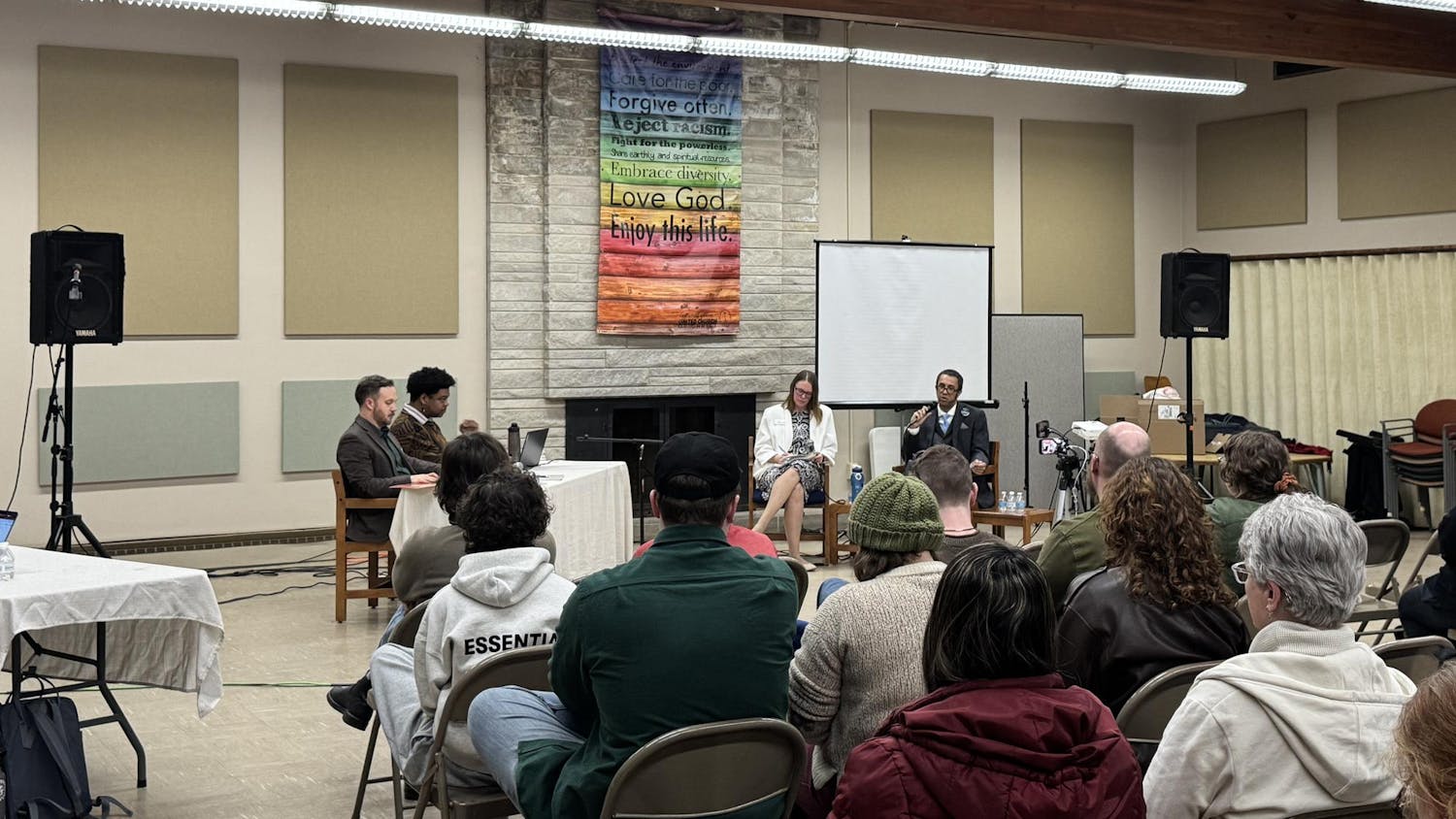The height of the COVID-19 pandemic may have ended, but many of us are still licking the wounds it left behind.
Just as we began to stop the bleeding, monkeypox began its crawl across the globe. Deemed a national health emergency by the United States government and an international threat by the World Health Organization, this viral disease calls into question what precautions may be necessary to minimize its impact.
Among these precautions is one that is known universally and intimately: masks.
I can't begin to imagine the sheer number of disposable masks I ran through during the pandemic's darkest hours. Wearing masks lowered the risk of contracting COVID-19, according to the Centers for Disease Control and Prevention. Yet the idea of having to wear one again, even for my health, leaves me feeling strangely — and ironically — ill.
[Related: OPINION: IU should have a better response to monkeypox]
This uncomfortable sentiment is not one that I hold alone. According to the public policy organization Brookings Institution, up to 20% of Americans have refused to wear masks in public, despite government influence and data proving it’s safer to do so.
When this same group was asked why they chose to forgo masks, a staggering 40% responded it was their right as American citizens to do so. In an ironic twist, masks — the devices designed to keep both the individual and the public safe — have become viewed by a hefty portion of Americans as directly opposing their ideals and culture, rather than protecting them.
This perspective is troubling due to the dangers not wearing a mask poses for both the maskless and those around them. Diseases such as monkeypox can run more rampantly. In other words, the more people refuse to wear masks, the more people die.
Masks should become commonplace, not intrusive, in American society. While this may at first seem strange, we can examine Japanese culture as an example of society integrating masks into its lives not only during the pandemic, but for all sorts of illnesses.
According to Web Japan, a collective of information about Japanese culture cultivated by the Ministry of Foreign Affairs of Japan, mask-wearing first became commonplace during the 1918 and 1934 influenza epidemics. Since then, mask-wearing by people suffering from mainstay and more minor illnesses, such as the common cold, has become a part of Japanese culture, rather than something temporarily tacked onto it.
[Related: Two years into the pandemic, IU scales back COVID-19 response]
With both American adversity and Japanese acceptance toward masks in mind, I'd like to encourage integrating mask-wearing into American culture, particularly for sick individuals in public.
It's very common in America for people ill with diseases like the common cold to go to places like school, work, and the grocery store, despite the threat of transmitting their illness to others around them.
Making masks mainstream for Americans who are sick provides the benefit of reducing the spread of lesser illnesses. By normalizing mask-wearing in day-to-day life, more people will be willing to wear masks when it's vital to do so, like when we need to come together to combat COVID-level threats.
Masks in American culture must be viewed as life-saving tools, rather than a threat.
Keegan Shoemaker (he/him) is a junior studying English.




